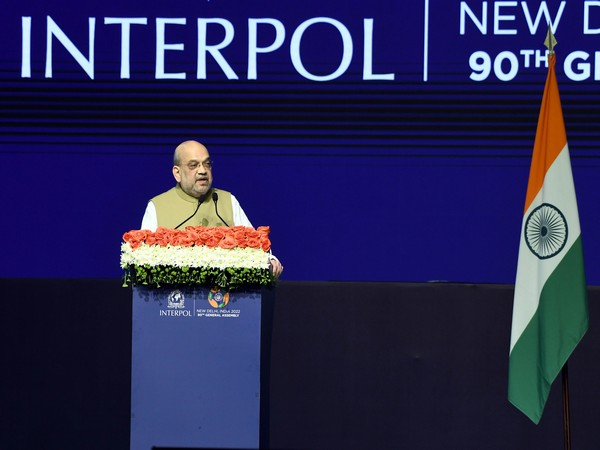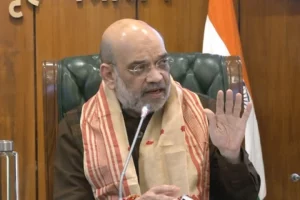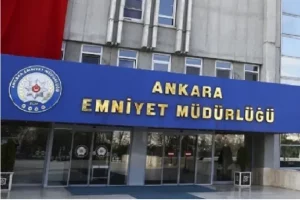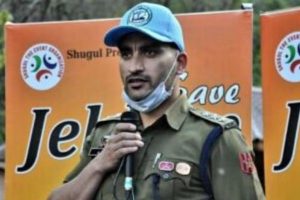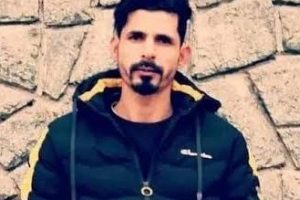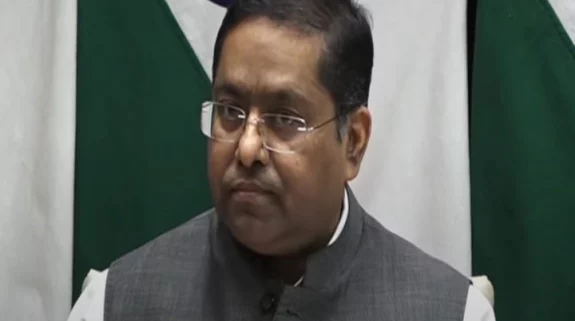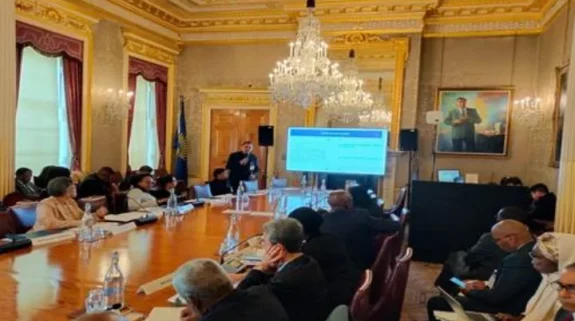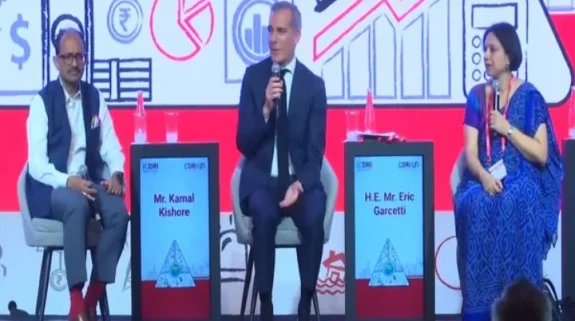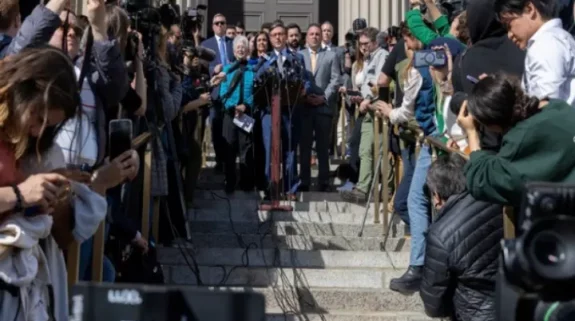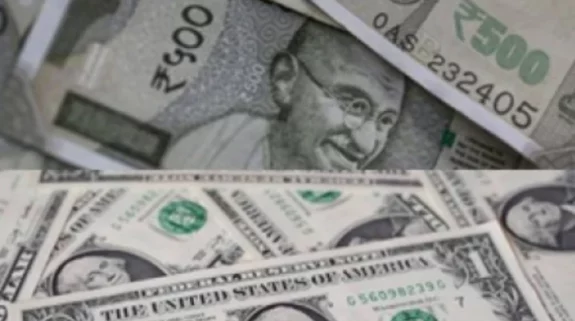With online radicalization and terrorism becoming the norm, Union Home Minister Amit Shah has called for a global effort to counter the internationalization of transnational crime during his closing remarks at the Interpol’s 90th General Assembly, organized in New Delhi.
Text of HM’s speech below:
Friends,
It is my great pleasure to address the closing session, of Interpol’s 90th General Assembly,’ organized in New Delhi during the 75th year of India’s independence.
Today’s date, the 21st of October, is a very important day for the Indian Police. In India, it is observed as the Police Commemoration Day in memory and gratitude towards 35,000 policemen, who have sacrificed their lives protecting India’s unity and democracy. Today, together with the President and Secretary General of Interpol, I paid tribute at the police memorial, to all those policemen.
Organized after the covid pandemic, this General Assembly of Interpol is in itself very special. During covid, the world has seen and experienced the human side of the police and seeing this humane side, the whole world has changed its perspective about the police force.
Over the last 100 years, Interpol has become a very large and effective platform comprising 195 countries, playing a very important role in controlling crime across the world. India is one of the oldest members of Interpol. It joined Interpol in 1949.
In today’s world, an organization like Interpol, is extremely necessary for cooperation and multilateralism.
I, on behalf of the Government of India, India’s Ministry of Home Affairs and various police forces of the country, I commend Interpol’s meaningful efforts and contributions to public security, world peace and stability.
Friends, the criminal justice system is not something new for India. Perhaps the first to reflect thoughts and philosophy about the criminal justice system has started in India. Whenever the concept of ‘state’ would have been introduced, policing must have emerged as the first responsibility of the state. The security of its citizens in any state is its first responsibility.
There is a deep reflection on jurisprudence and penal policy in Indian thoughts. Thousands of years ago, in the Ramayana, an ancient Indian epic, and in the thoughts of Vidur, Shukracharya, Chanakya, Thirukural etc., the principle of amicable justice and due punishment has been accepted.
In epic, the Mahabharata, a verse in chapter 15 means:
To control criminals, a justice system is a necessary aspect of any effective and successful governing mechanism. It is only justice that can ensure good governance in a society. It is only when justice is awake, even at night, that citizens and the society are fearless, and a good society can be built.
Recently, in the last 8 years under the leadership of Prime Minister Modi Ji, the Government of India, is continuously taking necessary steps to ensure that our police forces are always ready to face any challenge.
The Indian government has recently taken several new initiatives to address the challenges of the future.
The Indian government has established the National Forensic Science University. In form of ICJS (Inter operable criminal justice system) i.e. e-courts, e-prisons, e-forensics and e-prosecution that is the key pillars of criminal justice, have been linked to ‘Crime and Criminal Tracking Network and Systems’ (CCTNS).
The Indian government has also decided to create a national database on crimes such as terrorism, narcotics and economic offences. To combat cybercrime in a comprehensive manner, the Indian government has established the Indian Cyber Crime Coordination Center (I4C).
Friends, during this period characterized by a revolution in data and information, the nature of crime and criminals has changed. Today crime has become borderless, and if we want to stop this kind of crime and these criminals, we all have to think beyond conventional geographic borders, so, we have to think and act upon it.
Given that criminal syndicates are using state-of-the-art technology to collude at an international level, I see no reason why countries should not have cooperation and coordination amongst themselves.
This represents, our Police and Law Enforcement Agencies have a dual challenge:
1) On the one hand, the law has to be enforced within the ambit of national sovereignty.
2) On the other hand, understanding the global nature of the crime, tracing the perpetrators, also worry about justice as well.
In the midst of these challenges, to make the work of security agencies easier, the role of Interpol is very important and will become even more important in the future.
In this regard, I would like to draw the attention of the General Assembly to some issues.
Today, terrorism is a global problem and it is very appropriate that it is the first and most important of the 7 global policing goals of Interpol for the period 2020-2025.
“Addressing the threat of terrorism”
I firmly believe that ‘terrorism is the biggest violation of human rights’. In order to fight cross-border terrorism, across-border cooperation is very important, and for this Interpol is the best platform. First of all, all countries must agree on an explicit definition of terrorism and terrorist. On the one hand if the commitment is to fight terrorism together, and on the other defining ‘Good Terrorism, Bad Terrorism’ and ‘Terrorist Attack as – Big or Small’, these two narratives cannot go simultaneously.
We also need to achieve a consensus on the cross-border propagation of terrorist ideologies through online radicalization. If we consider the propagation of online radicalization as a political problem, then our fight against terrorism will be incomplete. We must all be committed to ensuring that an effective fight against terrorism should be long-term, comprehensive and sustainable. India is committed to working with Interpol to fight all forms of terrorism and to provide technical assistance and human resources.
We have seen in many countries that the Interpol nodal agency and the counter-terror agencies are different. Given this situation, in order to fight terrorism, we will have to bring together all the counter-terrorism agencies of the world.
In this direction, my suggestion to the Interpol is that, a permanent mechanism should be considered in establishing a ‘Real-Time Information Exchange Line’ between counter-terrorism agencies of all member countries and I believe that this mechanism will further strengthen our fight against terrorism in the coming days.
On the occasion of the 75th anniversary of India’s independence, Prime Minister Narendra Modi has put forward his vision of a drugs-free India.
Given challenges such as the emerging trends of global trade in narcotics, and narco terror, I feel the need for closer cooperation among all nations.
Such as
1. Platforms for the exchange of information and intelligence
2. Intelligence-based joint campaigns
3. Regional Maritime Security Cooperation
4. Mutual Legal Assistance
5. An effective mechanism to fight money laundering.
India’s Narcotics Control Bureau has achieved many successes in seizing narcotics, destroying them, and taking cases to their logical conclusion. I would also like to mention Interpol’s ‘Operation Lionfish’ and India’s ‘Operation Garuda’. And I would like to tell you that under ‘Operation Lionfish’, has achieved a major success by making the biggest seizure in India.
I would request that Interpol needs to do more to establish a ‘real-time information exchange network’ and a ‘comprehensive narco-database’ among the anti-narcotics agencies of all member countries.
It is indeed remarkable that Interpol is beginning the celebrations of its centenary and that we are witnessing it.
I have been told that during these 4 days, you also discussed Interpol’s global crime trend report 2022 and Interpol’s Vision 2030. At the same time, you also had in-depth discussion Agile Policing, the Metaverse and the changes taking place in the cyber threats landscape. Apart from this, 2 key proposals have also been passed to increase the use of the I-Familia database and the International Child Sexual Exploitation database.
When Interpol was established in 1923, crime and policing challenges then, and modes and methods of crime today are very different. A lot of changes have taken place, and it is quite natural that in the decades to come, even more changes will take place.
Criminal mindsets have not changed, but the means for crime are changing. In this regard, it is my suggestion that based on its experience and achievements over the last 100 years, Interpol, prepares a ‘Perspective Plan’ for the next 50 years.
If Interpol forms a study group under its aegis and makes a report titled ‘World Policing 2048 and World Policing 2073’ by doing detailed research on the challenges and solutions of the next 25 and 50 years, then the policing of the whole world will benefit greatly for the coming 50 years. And it will also be relevant to review this plan every 5 years. I believe that this research will prove to be very useful for law enforcement agencies of member countries.
It gives me great pleasure to handover, at this forum, the Interpol flag to Austria. I would like to convey my best wishes on behalf of myself and on behalf of India for organizing the Vienna General Assembly.
Finally, on behalf of India, I would like to reiterate our commitment. India is committed to working with Interpol as a partner to fight all forms of terrorism such as narco-terror, online radicalization, organized syndicates and money laundering.
In this regard, India is committed to supporting Interpol to establish a dedicated center or convention, and to start a dedicated communications network for the world’s counter-terrorism and anti-narcotics agencies.
On behalf of the host country, I thank all the delegations for taking part in the Interpol General Assembly in New Delhi. I am sure that this visit of yours to India, the visit to various places, and the festival of Diwali will always be memorable for you.
I commend Interpol and CBI for the excellent organization of the General Assembly. With these words, I conclude by wishing you all a happy and safe return to your country.
Vande Mataram !! Thank you!!
Also Read: FATF Plenary and Interpol General Assembly Meet: Key Takeaways for India






